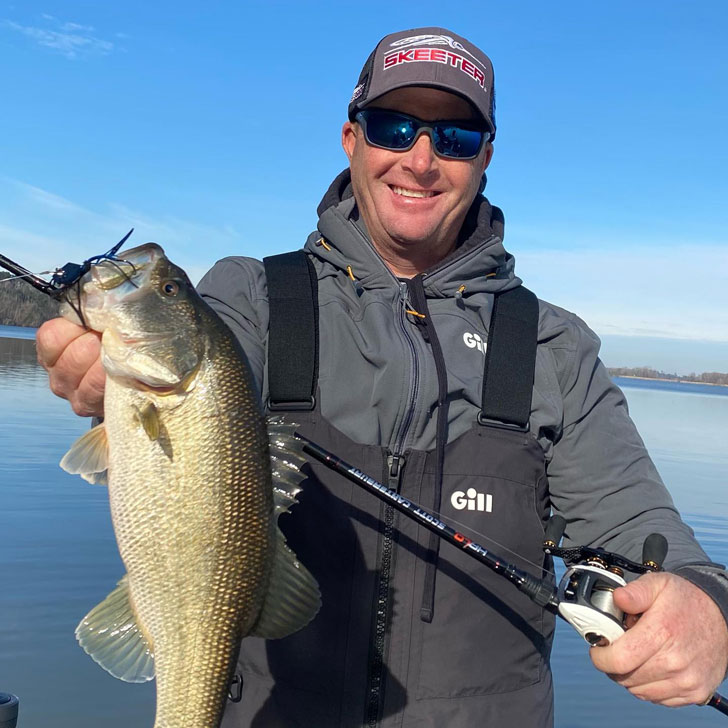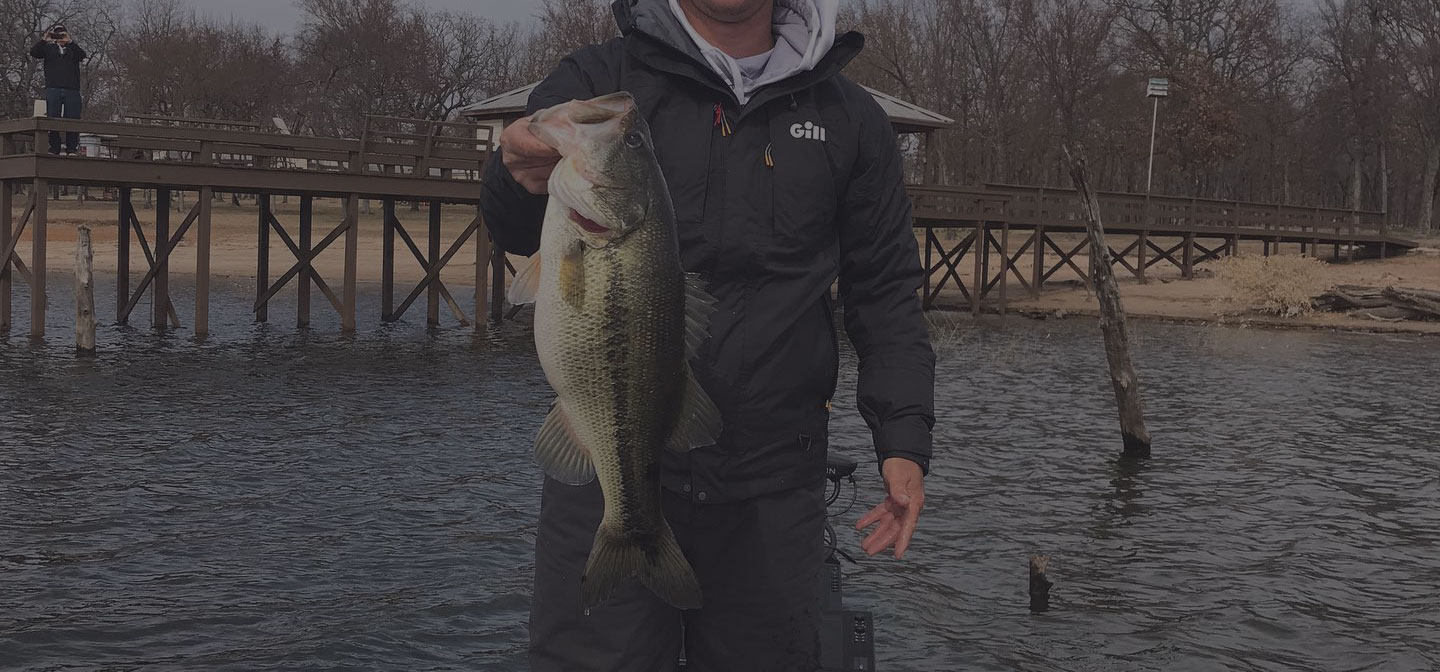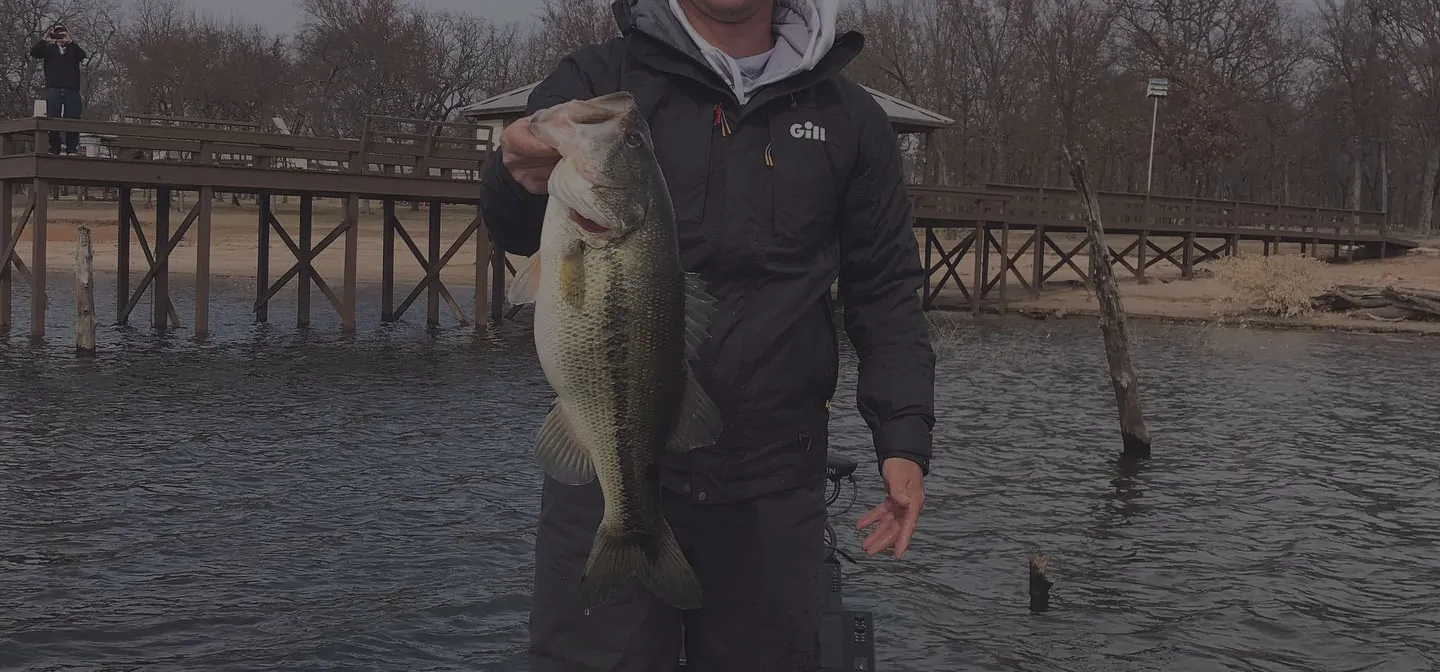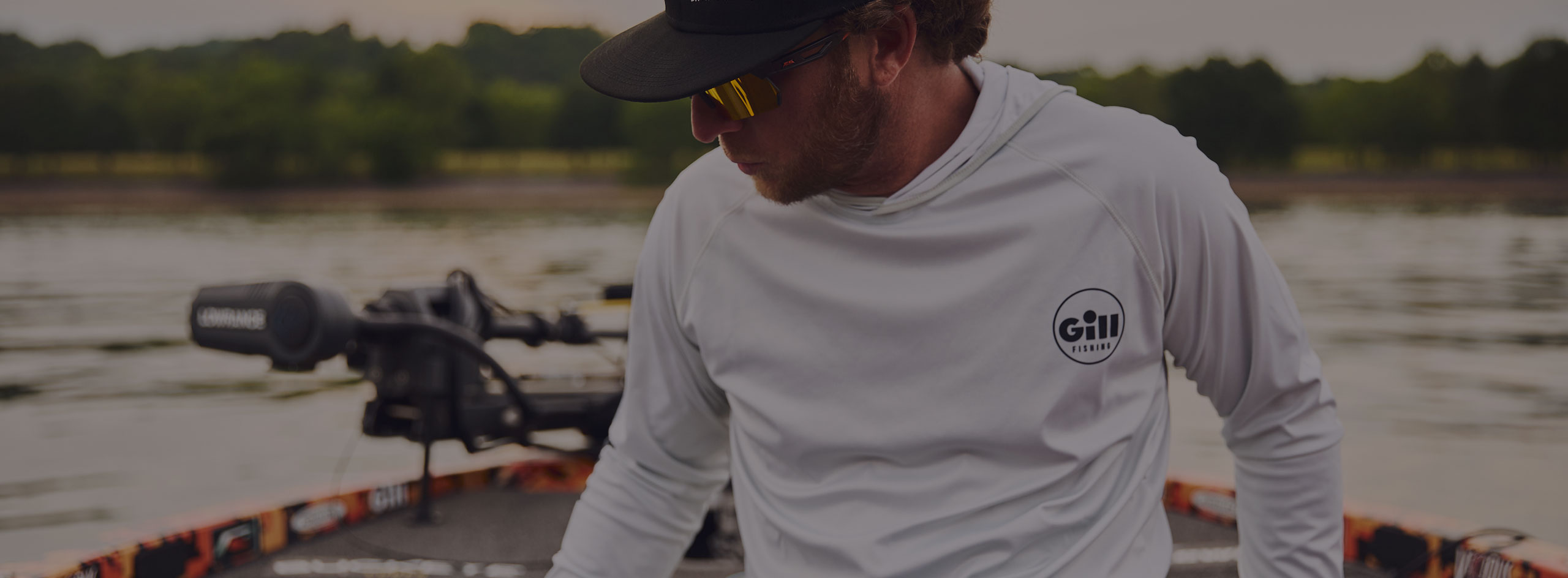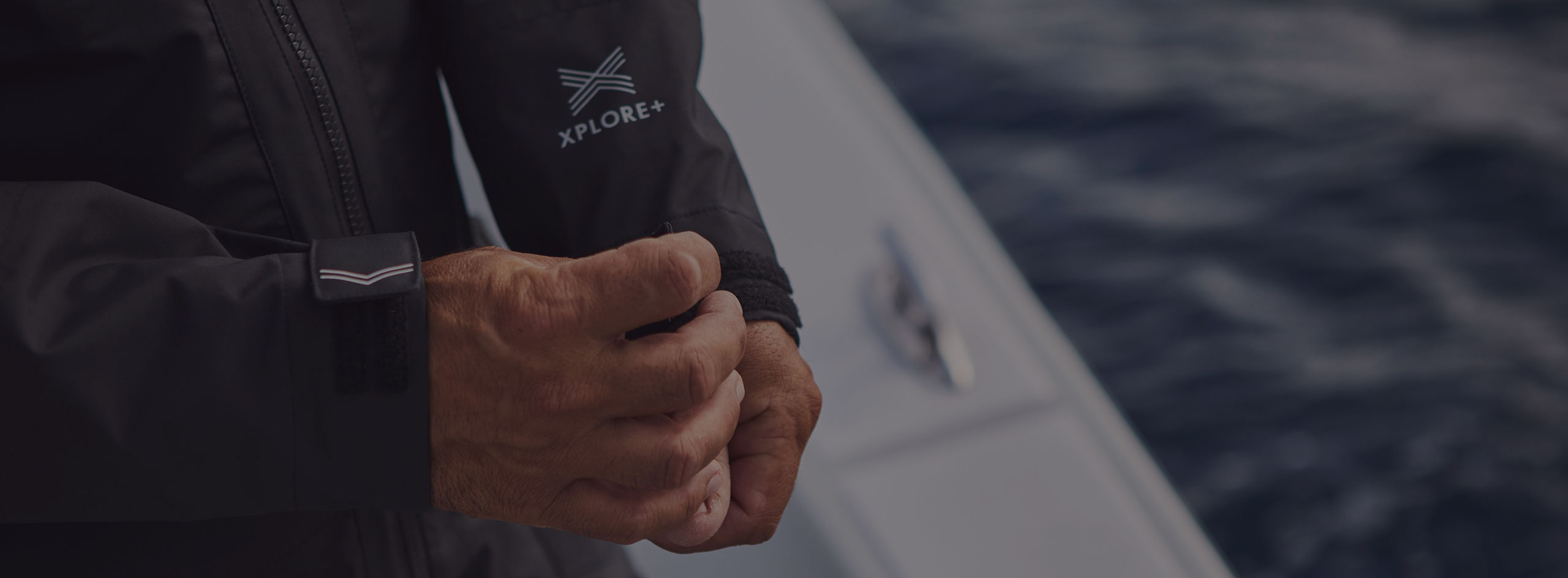Gill Fishing’s pro anglers give advice on getting fishing sponsors, earning a living fishing tournaments, and competing at the highest level.
While many anglers wish they could fish for a living, it’s a dream few pursue. If you’re ready to turn your passion for fishing into a career, take some advice from some of Gill Fishing’s top pro anglers.
Are You All In?
Dakota Ebare, an MLF Bass Pro Tour angler who recently took second at Stage Two on Lake Fork, recommends a gut-check before committing to tournament fishing. If you’re looking for a “9-to-5” lifestyle, this isn’t the right job, Ebare says.
“Bass fishing at the highest level is a 365-day job. You have to be all in. You have to really love it,” Ebare says. “It’s not for everyone. I’m 29. I’m single. I don’t have a family. My friends from high school went to college, made a lot of money and have families and big houses now. I sacrificed all that to be where I’m at today,” Ebare says.
Ebare turned down a stable career in chemical refinery to pursue a life on the water. In his early days, he worked hard labor at a ranch to make loan payments on his first boat. While friends went to the bar, Ebare stayed at home to save money for entry fees.
It was a tough period of his life, but he can’t imagine doing anything else. That’s the mindset you need to succeed, he says.
“For every thousand kids who make excuses why they can’t do this, there will be one that finds a reason why he can. And that’s the one who ends up being successful in fishing,” Ebare says.
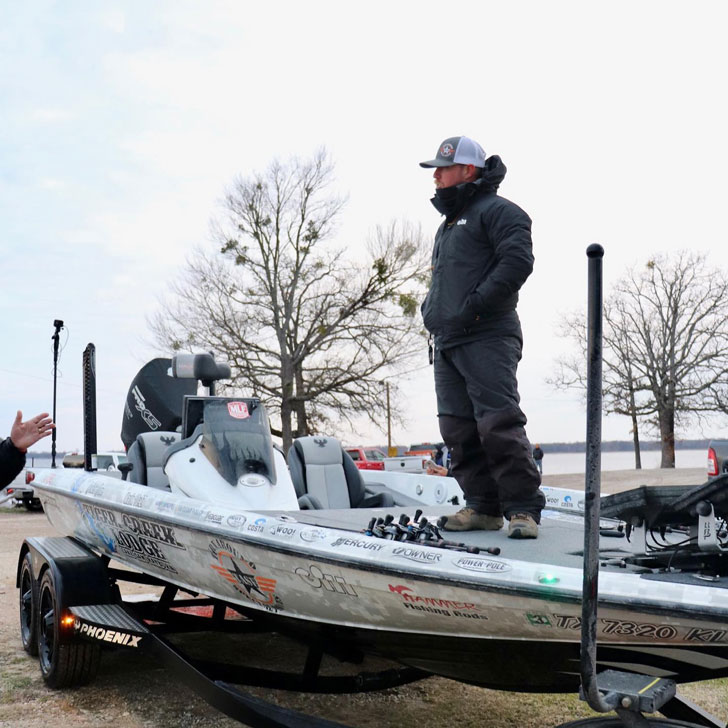
Getting to the Big Leagues
Ebare says his experience on a collegiate bass fishing team opened the door for him to become a professional, as it provided crucial experience competing on new waters that made him a more versatile angler.
“That was huge for me because I didn’t know much about fishing other than south Louisiana. I was out of my element at a lot of places we went, but it made me think outside the box and learn,” he says.
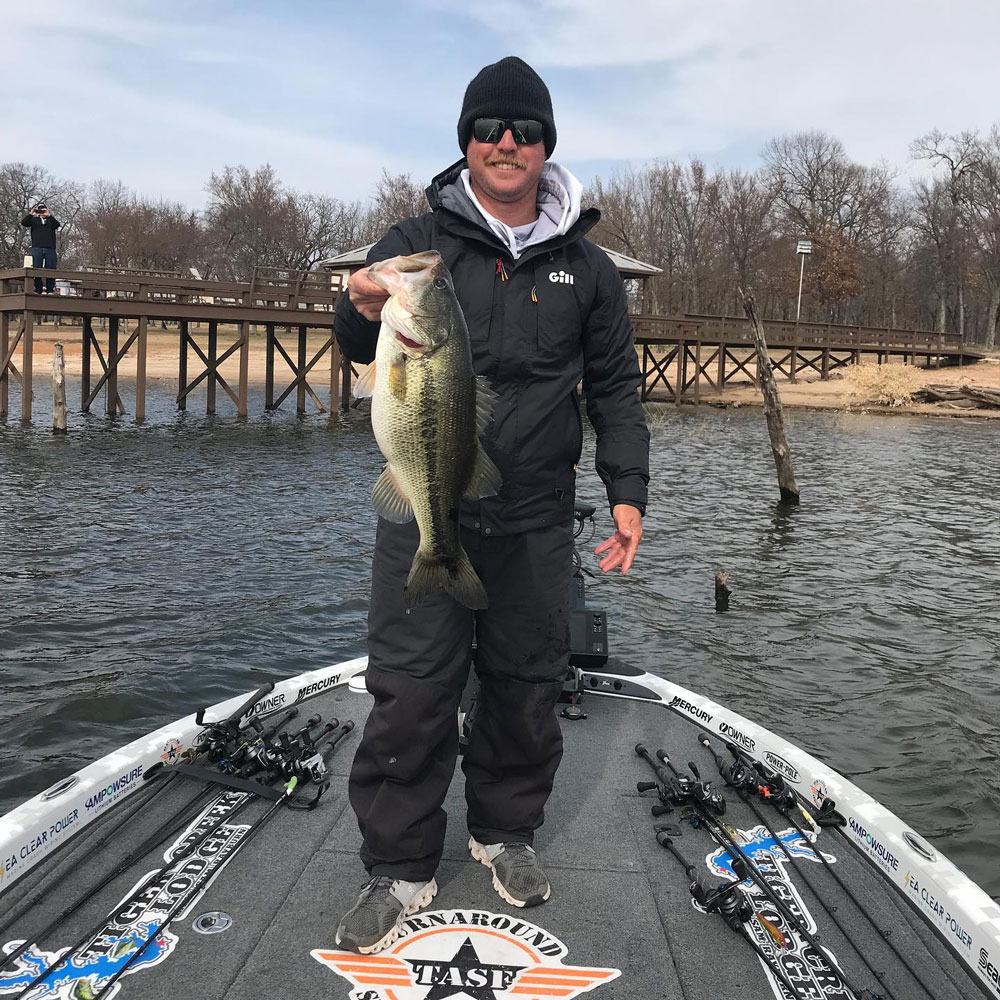
How to Get Sponsors
During his rookie year on the FLW Tour in 2007, Scott Canterbury had just one sponsor who paid his entry fees—and it wasn’t a boat manufacturer, apparel brand or tackle company.
“At the time, I was working for a local plumbing company, and my boss talked me into fishing the tour and helped me cover my entry fees. He travelled with me everywhere and fished as my co-angler. I ended up winning Rookie of the Year that season, along with $170,000,” Canterbury says.
While you may never find a boss who will bankroll your bass-fishing fantasy, Canterbury says local businesses are great opportunities for anglers looking for their first break. While high school tournaments or local circuits lack the profile to attract prominent fishing brands, these grass root events provide valuable exposure to businesses in those communities.
Canterbury has been in the game a while, and he says hard work and loyalty have been the key to his longevity. His advises young anglers to start working with fishing brands on a pro-staff basis, which can offset costs by providing free or discounted gear. Work hard to get results, and build an audience on social media. If you can demonstrate your value and loyalty to these companies, it may convince them to start writing checks.
“A lot of young anglers think they can win a local tournament and all of a sudden, someone needs to start paying them. That’s not the way it works,” Canterbury says. “It took me a few years to get my name out there. Fishing has grown a lot, and it happens a lot faster now with social media than it did when I started. But it still doesn’t happen overnight.”
